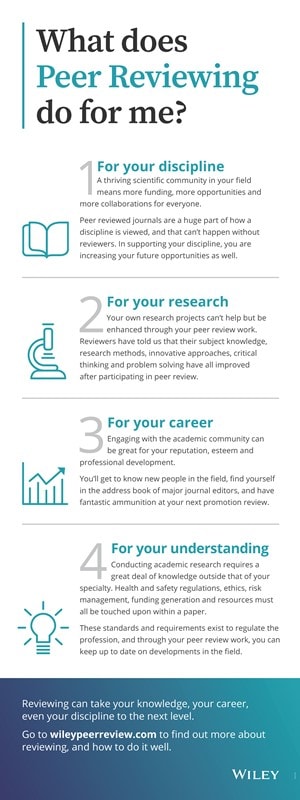

Getting involved in the peer review process can be a highly rewarding experience that can also improve your own research and help to further your career.
In short, anyone who is an expert in the article's research field. Editors might ask you to look at a specific aspect of an article, even if the overall topic is outside of your specialist knowledge. They should outline in their invitation to review just what it is they would like you to assess. All in all, you simply need enough specialist knowledge to evaluate the manuscript and provide constructive criticism to editors and authors. What's more, a good reviewer can be at any stage of their career.
You could also try finding a journal with a mentoring program for early career researchers looking to become reviewers. The Journal of Morphology and Austral Ecology, for example, have such programs.
If you're new to peer review and feeling unsure of yourself, don't worry. Confidence will come with experience - but how do you get the right kind of experience?
It's worth seeking out guidance from more experienced colleagues. Also, resources such as this site will help you find the best way to evaluate a manuscript and structure your feedback.
Gaining the support of an experienced mentor and familiarizing yourself with the process of peer review should help you build your confidence and track record.
If you're just starting out as a reviewer, don't be deterred. Journal editors are often looking to expand their pool of reviewers, which means there will be a demand for your particular area of expertise.
We created a series of three short videos asking individuals from across the globe about peer review. This video answers the question, “What do you believe are the most important outcomes of peer review?”